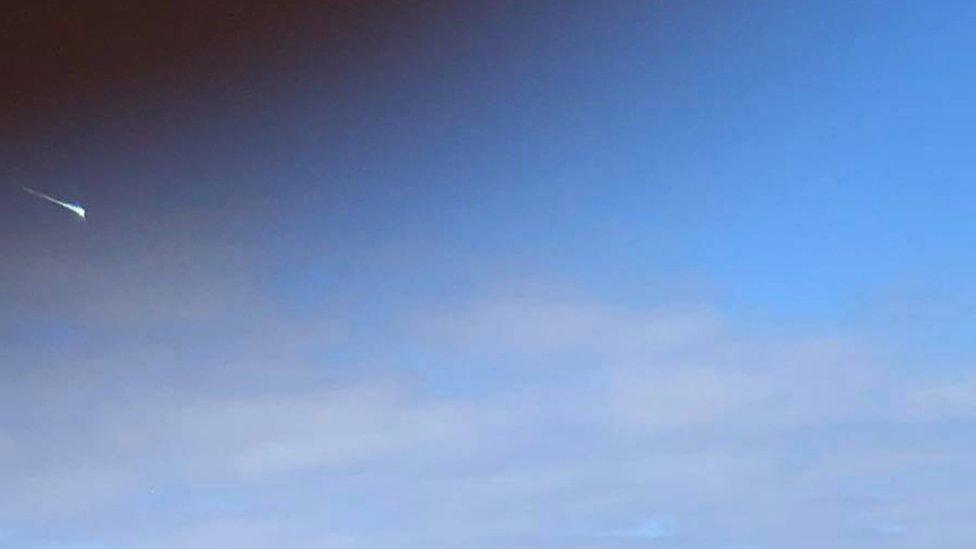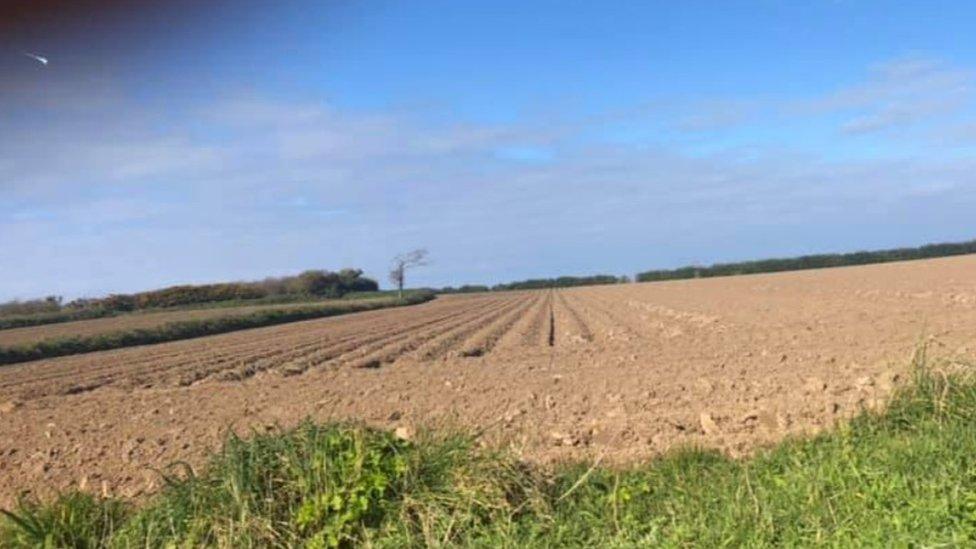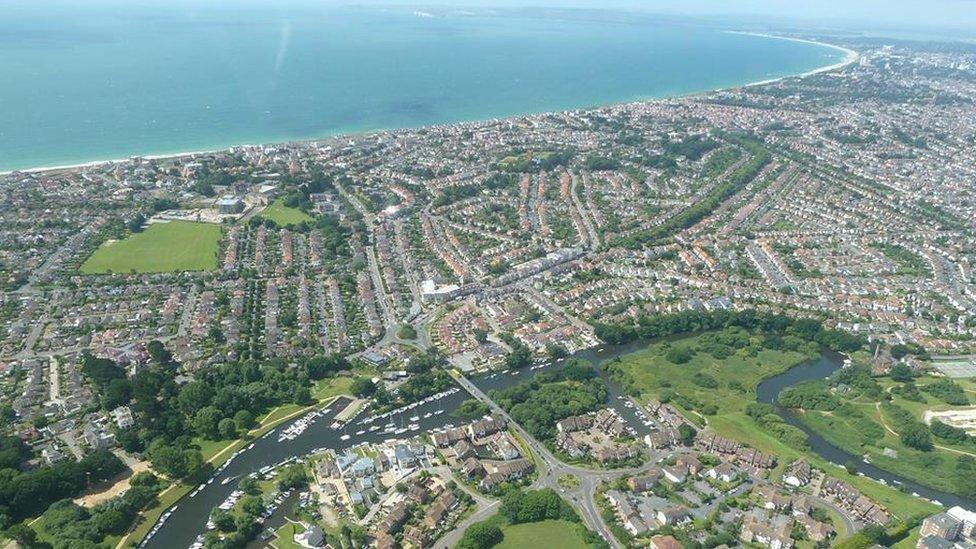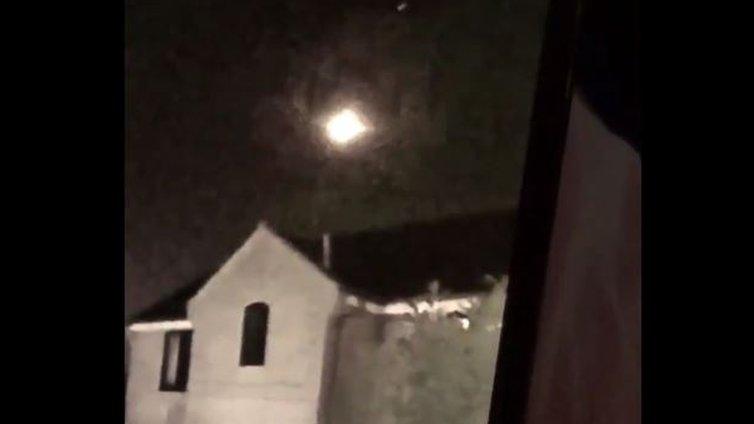'Sonic boom' in Dorset blamed on 'fireball meteor'
- Published

The meteor was captured streaking across the Jersey skyline on Saturday afternoon by the O'Prey family
An "extremely rare" meteor known as a daytime fireball has been blamed for a sonic boom-type noise heard across parts of England.
People in Dorset, Somerset, Devon and Jersey reported hearing a loud bang and seeing a streak of light in the sky on Saturday afternoon.
After analysing pictures and videos, experts confirmed they showed a meteor.
They have urged people to keep an eye out and report any fallen fragments of the space rock, external.
Simon Proud, a specialist in aviation meteorology at the University of Oxford, captured the meteor - which appeared as a bright flash - flying over the UK on a weather satellite.
Allow X content?
This article contains content provided by X. We ask for your permission before anything is loaded, as they may be using cookies and other technologies. You may want to read X’s cookie policy, external and privacy policy, external before accepting. To view this content choose ‘accept and continue’.
Richard Kacerek, from the UK Meteor Observation Network of amateur astronomers, said only the brightest "bolide class" meteor could produce a rare "daytime fireball".
He added that the one seen on Saturday would have needed to be "very large" to be visible during day.
Dr Ashley King from the UK Fireball Alliance - a group of experts and enthusiasts who hunt for freshly-fallen meteorites - said the fireball "would have been going faster than the speed of sound".
"Normally when you hear that it's a good sign that you have got rocks that have made it to the surface. It's incredibly exciting and I'm a bit stunned," he said.

The meteor was seen hurtling through the sky at about 15:00 GMT on Saturday
The group has asked people in the Devon, Dorset or Somerset areas to report finds of any fragments, external - believed to be small blackish stones, or a mound of dark dust.
Data from cameras is also being analysed to give details of the meteor's journey.
Speaking to BBC Radio Somerset, astronomer and science journalist Will Gater, external, who was among the first to link the sonic boom to a meteor, said: "If somehow the location can be pieced together who knows - the thought that something could be recovered is quite exciting."
Following the "huge bang", which people said shook their homes and windows, an earthquake was ruled out by The British Geological Survey.
The Ministry of Defence also said the "massive bang" was not linked to any RAF aircraft.
A campsite near Weymouth captured the loud noise on a security camera.
Allow X content?
This article contains content provided by X. We ask for your permission before anything is loaded, as they may be using cookies and other technologies. You may want to read X’s cookie policy, external and privacy policy, external before accepting. To view this content choose ‘accept and continue’.
In February a meteor flying across the sky at night was caught on lots of doorbell cameras across the UK.
"It blows your mind": The people of Winchcombe react to the meteorite discovery
Several rocky fragments were recovered from the fireball - they came down in the Winchcombe area of Gloucestershire.
Because it happened at night cameras were able to record the rock coming through the atmosphere creating a huge fireball in the process.

Follow BBC South on Facebook, external, Twitter, external, or Instagram, external. Send your story ideas to south.newsonline@bbc.co.uk, external.
Related topics
- Published20 March 2021

- Published9 March 2021
- Published1 March 2021
